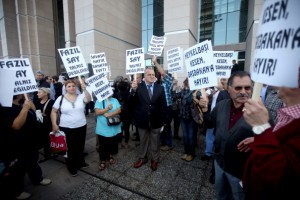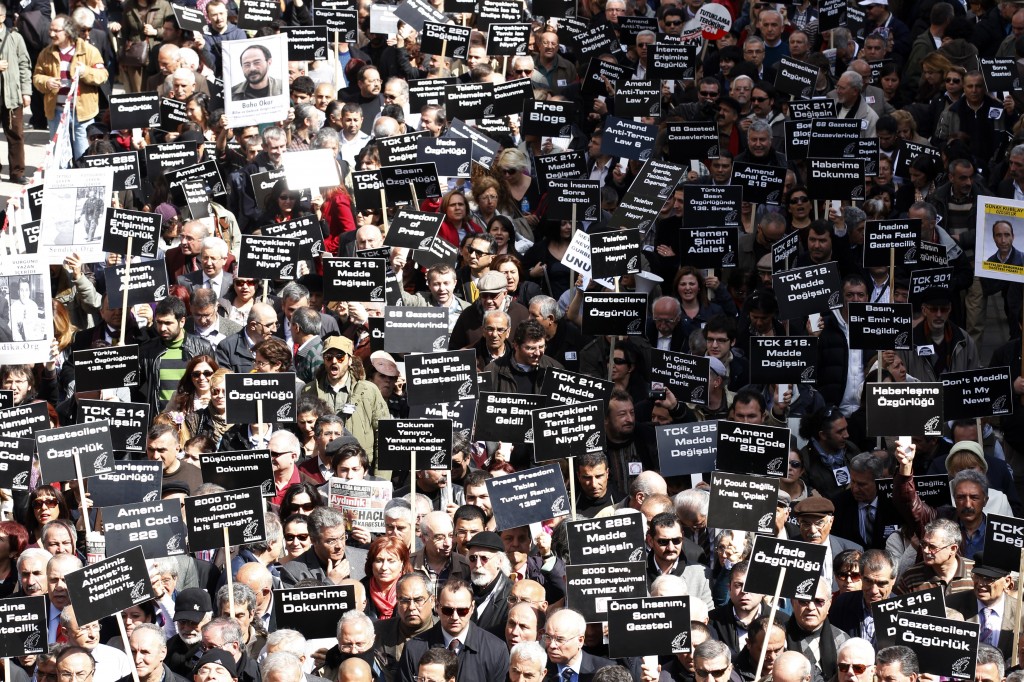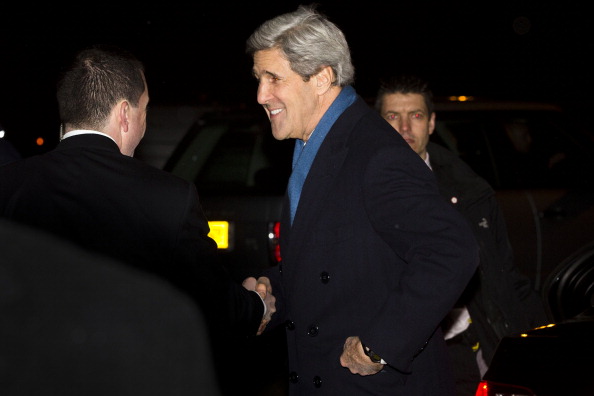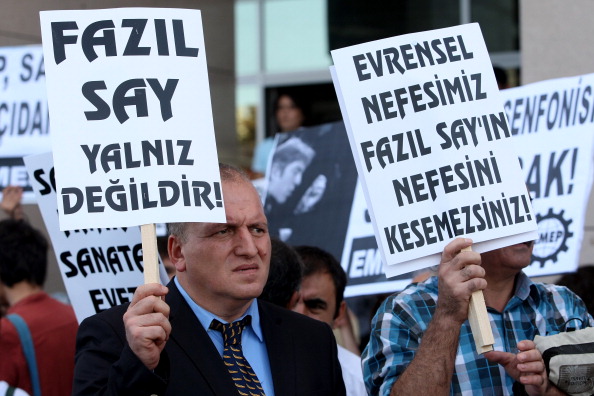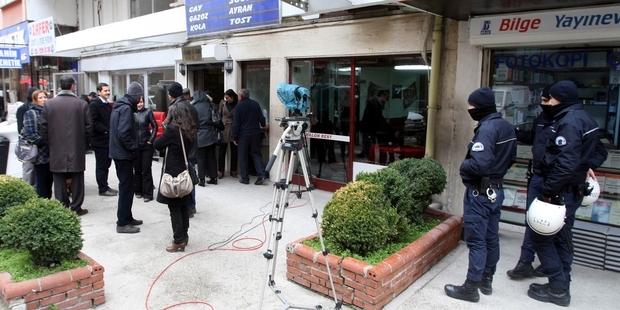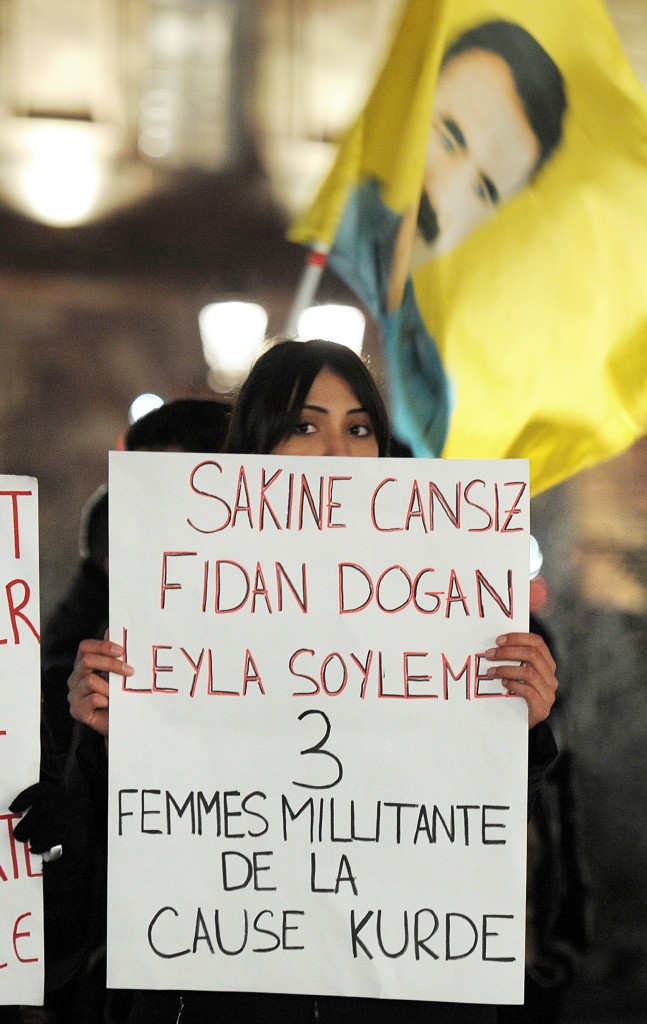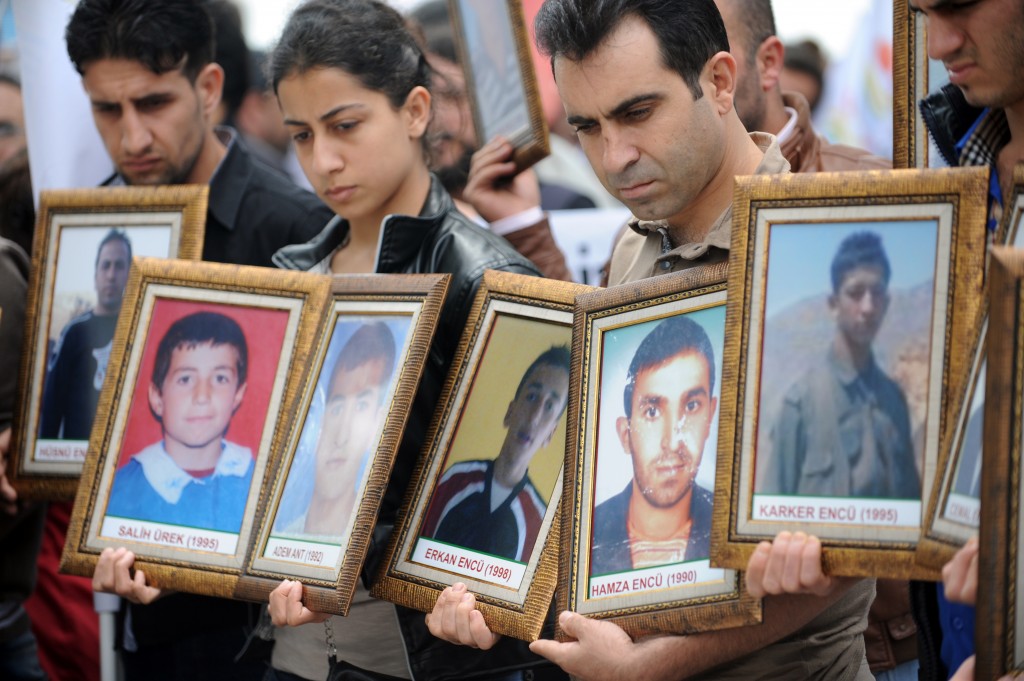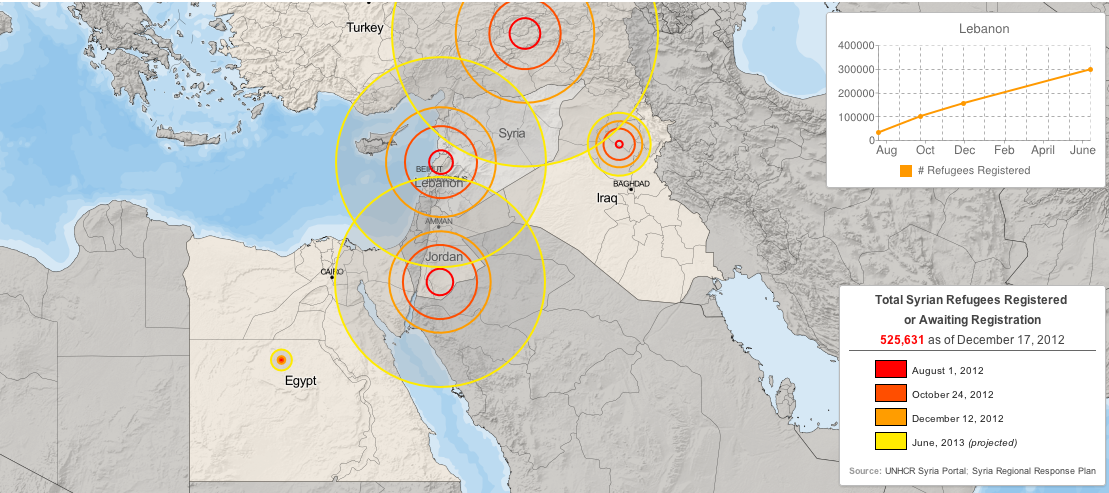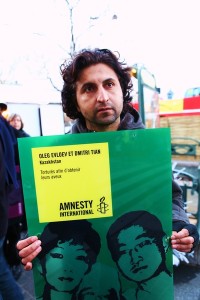
Halil Savda at a Write for Rights event in France on Human Rights Day, December 10, 2011 (Photo Credit: Michael Sawyer for Amnesty International).
This May 15, International Conscientious Objectors Day, is an opportunity to both celebrate the steady acceptance of this fundamental right and to highlight those countries who have not taken the basic steps to protect it.
In Europe for example, the European Court of Human Rights (ECHR) recognized conscientious objection as a protected right in 2011 when, in Bayatyan v Armenia, it ruled that conscientious objection was subject to Article 9 of the European Convention on Human Rights, which protects freedom of thought, conscience, and religion. Unfortunately, as an Amnesty statement released today highlights, three European countries, Armenia, Azerbaijan, and Turkey, still refuse to accept this basic obligation under international law.
Amnesty’s position on conscientious objection is clear:
The right to conscientious objection to military service is not a marginal concern outside the mainstream of international human rights protection and promotion. The right to conscientious objection is a basic component of the right to freedom of thought, conscience and religion – as articulated in the Universal Declaration on Human Rights, the International Covenant on Civil and Political Rights and the European Convention for the Protection of Human Rights and Fundamental Freedoms.
